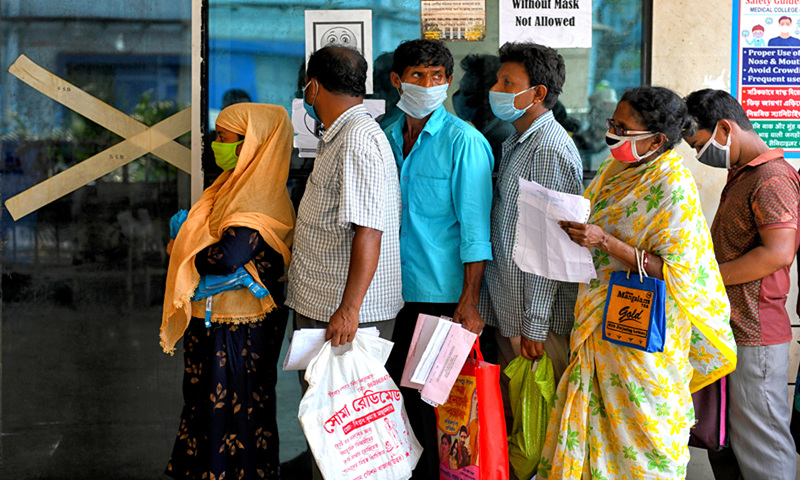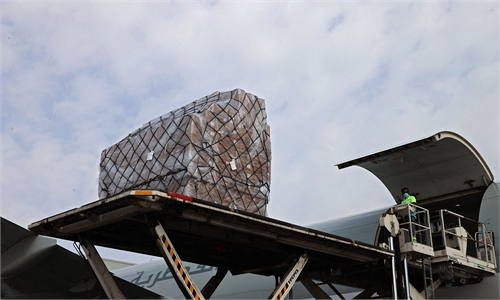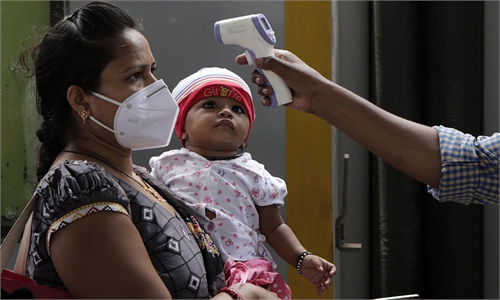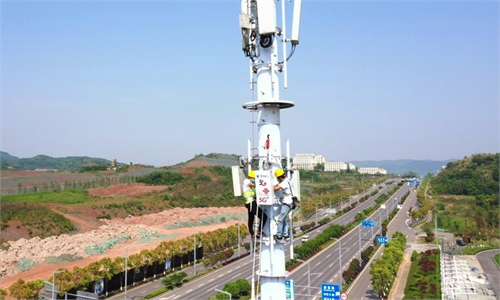
Indian people with COVID-19 symptoms queue for an Antigen Test at a government hospital. Photo: VCG
India's ambition to rise as a great power is being questioned as never before. After recording its worst economic performance in more than four decades, India's badly wounded economy still faces great uncertainty created by a huge second wave of COVID-19 infections that has apparently derailed its recovery.
India's GDP contracted 7.3 percent in the last financial year that ended in March 2021, according to data released on Monday by the country's statistics ministry.
On a quarterly basis, the economic growth curve during the year 2020-21 seems to indicate that the Indian economy did recover somehow from the devastating impact of the pandemic. While India's GDP plunged 24.38 percent year-on-year in the quarter from April to June 2020, the economy saw a 1.6 percent growth in the fourth quarter of the last fiscal year, recording a positive growth for the second consecutive quarter, which some economists believed pointed to a silver lining for the pandemic-battered economy.
Yet, a massive second wave of infections is set to disrupt India's economic recovery and will certainly reflect its impact in the economic figures for the second quarter of this year. A combination of record daily infection cases and fatalities, slow vaccination drive as well as lockdowns has hit economic activities across the country since April. As a result, factories shut down and industrial chains were disrupted, throwing the entire manufacturing sector into chaos, which also cast a shadow on future inflows of foreign investment.
To a certain extent, whether India has the ability to rein in their most recent and devastating outbreak of COVID-19 will largely determine the future of its manufacturing development. At around the same time last year, despite the pandemic, many multinational companies still expressed their confidence in India's economic resilience to the epidemic by announcing various plans to either make more investment or transfer production capacity to the South Asian nation.
In fact, it was even until the beginning of this year that economists and international financial institutions still generally believed India would become one of the fastest-growing economies in the post-pandemic era.
But now all these projections are up in the air. If India cannot flatten the infection curve, then its economy would have to pay the price for the failure to contain the virus spread, with foreign investment being one of the most affected aspects among all the consequences. In this context, India is actually drifting further and further away from its goal of becoming a manufacturing power.
In the face of this grim prospect, it is more essential than ever for the Modi government to treat existing foreign investments fairly, in addition to overcoming the current outbreak. In the end, official sincerity is needed to ease investors' concerns and lift their confidence under the current circumstances, which hopefully may be conducive to the stability of the Indian economy and the Asian economy as a whole.



